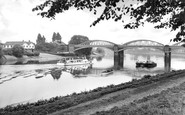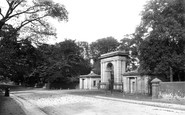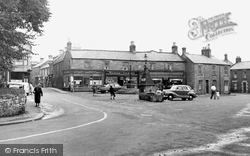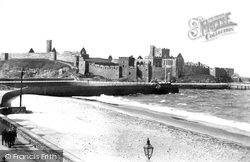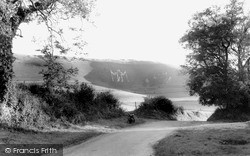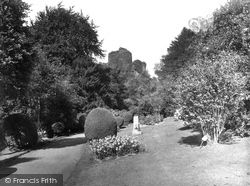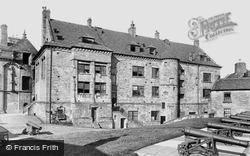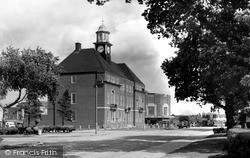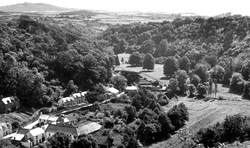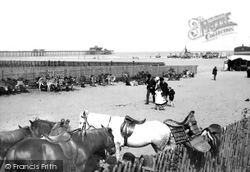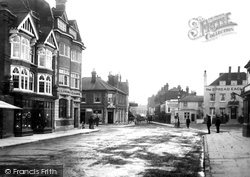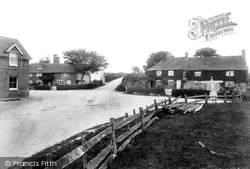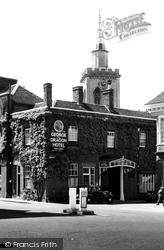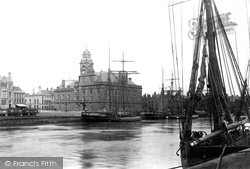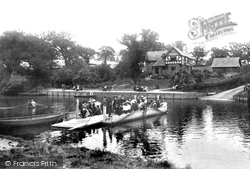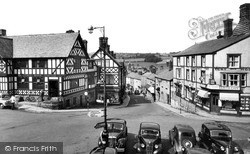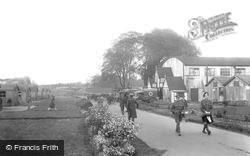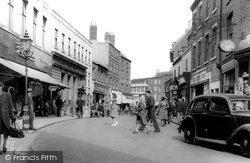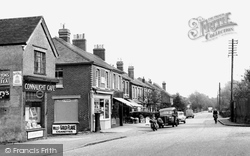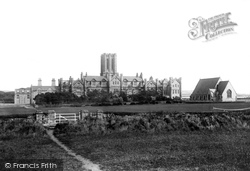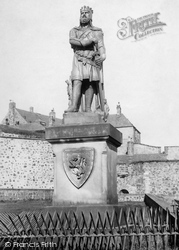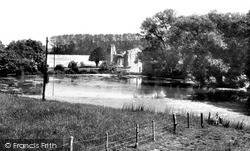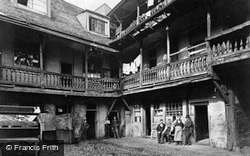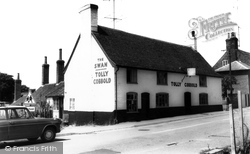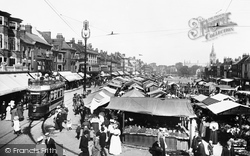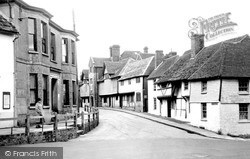Places
8 places found.
Those places high-lighted have photos. All locations may have maps, books and memories.
Photos
80 photos found. Showing results 421 to 80.
Maps
49 maps found.
Books
Sorry, no books were found that related to your search.
Memories
1,421 memories found. Showing results 211 to 220.
History Of Clayton Family 1700s
Descendants of George Clayton Generation No. 1 1. GEORGE1 CLAYTON was born 1788 in Pickhill, West Roxby, Yorkshire England. He married ANN MUDD 08 December 1806 in Pickhill, West Roxby, Yorkshire England. She was ...Read more
A memory of Pickhill in 1860 by
Henry Tingey Ancester
My great grandfather Henry Tingey, was born November 18, 1819, in Biggleswade, Bedfordshire. He was the son of James Tingey and Elizabeth Boniss. James and Elizabeth, and family later moved from Bigglewade, Bedfordshire, ...Read more
A memory of Biggleswade by
Follansbee Aka Follingsby Or Foljambe Of Hamsterley Durham England
This isn't exactly a 'memory' as it is a fact relating to my ancestors, the Follansbee's of Hamsterley, County Durham, England. It is recorded that the Follansbee's (various ...Read more
A memory of Hamsterley by
The Howard Family Of Barnes And Hammersmith
My Great-Great-Grandad, Henry Howard, lived in the early 1800’s - a time of great rural depression - and so he left his Devon home to look for work in London with the result that several generations of my ...Read more
A memory of Barnes in 1870 by
Caerau Ancestry!
My mother Christine Evans I believe lived in George St Caerau and left for Australia with her new RAAF husband Vince Murphy just after the War around 1945. She was followed out to Australia by her parents Christmas and Kathleen Evans. ...Read more
A memory of Caerau by
Burns Pit Disaster
From his seat, by the fire, my grandad could see the great mound of the spoil heap of Stanley Burns Pit. It was the site of a horrific explosion, on 16th February 1909, in which 168 men and boys lost their lives. He would ...Read more
A memory of Stanley in 1900 by
Weekend Visits
I was only about 6 years old but I clearly remember visiting my grandparents' house on weekends. My grandfather was a gamekeeper on the moors until his retirement. In the early 1970s he and his wife moved to nearby Penistone. We ...Read more
A memory of Upper Midhope in 1970 by
Jeff Bromley A Place In History! 1944 1963 2013
I hope this memory of Normacot is the first of many to be placed by me and then hopefully by others. I was born in 1944 in Lower Spring Road, (opposite Garbetts Toffee Factory), one of a family of 5 ...Read more
A memory of Normacot by
Re Comment By John Howard Norfolk On Wigan Clogs
Wigan-made clogs always did have a reputation even way back when - so it's nice to have this confirmation of their quality holding up even to today. I've even discovered that one of my ancestors made his ...Read more
A memory of Wigan by
Captions
877 captions found. Showing results 505 to 528.
There was a time when Corbridge held a weekly market, but this petered out as the town declined following the Civil War.
At the height of the season, Peel harbour was often full of fishing boats - Manx, Cornish, Irish and Scottish - as they followed the migrating herring into Scottish waters.
'Discovered' in 1873 and restored the following year, its origin is still unknown. It may represent a pilgrim, and this may link it to the medieval Wilmington Priory nearby.
Following the move of the gaol and assizes to Bodmin in 1842, the grounds were landscaped and turned into a pleasure park by the Duke of Northumberland.
Following their defeat at the Battle of Dunbar, Major General David Leslie and several thousand survivors of his army took shelter in Stirling. The town eventually fell to General Monk.
It opened on 26 August 1936, and the first film to be shown was 'Follow the Fleet' starring Fred Astaire and Ginger Rogers.
This was finally implemented in Britain in 1752, whereupon the 2nd September was, somewhat abruptly, followed by the 14th.
This last chapter follows on geographically from where the fourth chapter finished, at Burgh le Marsh four miles west of Skegness.
Once the village of Ebbisham, its immense popularity as a spa resort after the Restoration, followed by its emergence as a racing centre, brought Epsom to national prominence.
The obelisk has been fully restored following a recent lightning strike.
In the 1920s and 1930s, the George and Dragon Hotel was a popular stopping-place for cyclists and walkers following the route of the Icknield Way.
Scots fisher girls followed the herring shoals down to the port in the autumn and worked tirelessly day and night gutting and packing.
Following the publication of Jerome K Jerome's book 'Three Men in a Boat', the pastime of 'messing about in boats' became very popular in Victorian and Edwardian times.
The cars appearing here in St Peter's Square, where a roundabout now guides traffic, were to be followed by many more as car ownership increased from the 1950s.
By spring of the following year this had become a convalescent hospital for Commonwealth troops, and in August 1916 it was handed over to the Canadian army.
Each chapter can be followed as a self-contained tour.
The growth of the village followed later. The Connaught Cafe, seen here on the left, is now a private house, but the post office next door remains.
The distinctive central tower of King William's College was designed by John Welch and was a feature of a major rebuilding programme following a fire in 1844.
Cut off from all support, Sir James threw Bruce's heart into the ranks of the enemy and he and his followers charged in after it.
Following its dissolution in the 16th century, Lilleshall Abbey has become a ruin - its stones were used for the building of many houses in the area.
This coaching inn, which dated from Tudor times, was rebuilt in 1676 following the Great Fire of London in 1666.
The pub was threatened with closure in 1995, but it was saved following a successful campaign to 'Save our Swan'. The car is an Austin A40.
They had their patch and followed the local farming calendar.
Following the decline of Steyning's port during the Middle Ages, the focus of the town shifted southwards from around the church and became centred on the junction of Church Street and the High Street.
Places (8)
Photos (80)
Memories (1421)
Books (0)
Maps (49)



